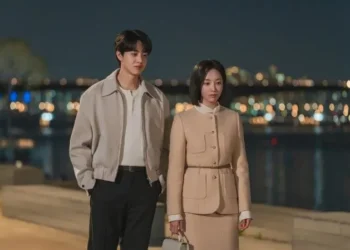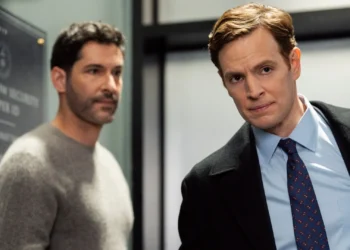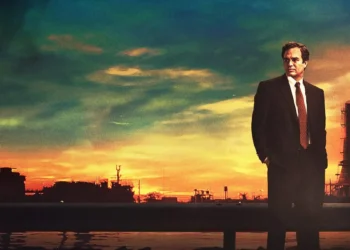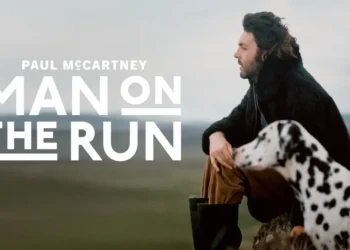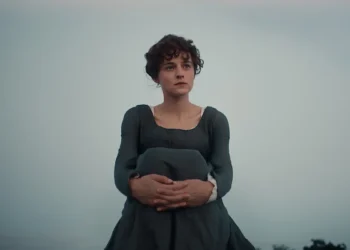Set in Dakar, the bustling capital of Senegal, this action-packed thriller Zero boasts stunning cinematography, dynamic editing, and a bold approach to its tonal variations, leaving viewers feeling invigorated and awestruck by the conclusion. The film utilizes the familiar, if somewhat cliché, ticking-time-bomb concept, yet Congolese writer-director Jean Luc Herbulot, alongside co-writer and lead actor Hus Miller, brings a refreshing and inventive twist to the narrative. It’s likely to encourage audiences to explore Herbulot’s previous works, including the festival-celebrated gangster-horror film Saloum, which also creatively blends genres within a Senegalese setting.
The plot revolves around an unnamed protagonist, referred to simply as #1, portrayed by Miller, who regains consciousness on a bus in Dakar with a sophisticated bomb strapped to his chest, set to detonate in ten hours. The bomb is linked to a countdown-displaying mobile phone, and a nearby young woman instructs him to don a Bluetooth earpiece to respond when the phone rings. When he answers, a gravelly American voice (voiced by Willem Dafoe) informs #1 that he must complete a series of tasks throughout the day before the bomb explodes.
Before long, #1 partners with another American, nicknamed #2, played by Cam McHarg, and they embark on missions across the city. Their assignments involve locating various individuals and delivering items that, in at least one instance, lead the recipient to be killed by another smaller bomb. These explosions are widely perceived as acts of terrorism, reported breathlessly by the local news, which serves as a recurring narrative device; thus, #1 and #2 must evade both local authorities and enraged mobs.
Amid the chaos, there are lighter interludes, such as a sequence where the two bomb-laden characters are forced to snort large quantities of cocaine to satisfy a drug lord. Their ensuing high leads to a montage accompanied by vibrant African hip-hop, an intermission that adds little to the plot but seems primarily designed to resonate with a younger male audience. However, the film’s tone shifts to a more serious note later in the story when they encounter their final target, Daniel (Gary Dourdan). He ties the narrative threads together with a thought-provoking monologue set against another montage, featuring filmed portraits of Dakar residents gazing directly at the camera, their vacant expressions potentially accusatory or inquisitive, symbolizing the everyday people who endure the fallout when political factions clash on the streets.
Herbulot and the cinematography team also harness drone technology for unique aerial shots, while creative lens work induces a sense of disorientation. This visual approach serves to portray a vibrant modern African city teeming with color, texture, and movement; a continuous flow of humanity navigates through bustling residential neighborhoods, heaps of debris, and commercial districts before reaching the Atlantic Ocean at the city’s edge. The climactic scene unfolds in this coastal locale, aiming for a tragic conclusion that doesn’t completely succeed, yet remains true to the film’s overall intensity.
Zero will be available in cinemas starting July 25 and on digital platforms from August 11.
https://www.instagram.com/reel/DMZznUPNIfB/?utm_source=ig_web_copy_link&igsh=MzRlODBiNWFlZA==



